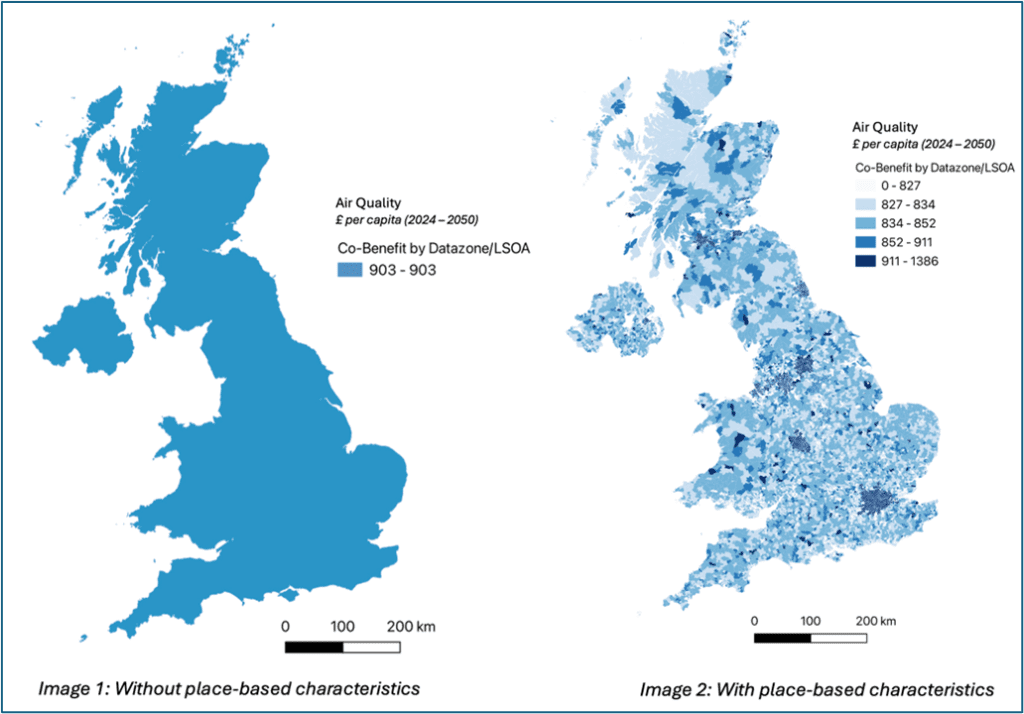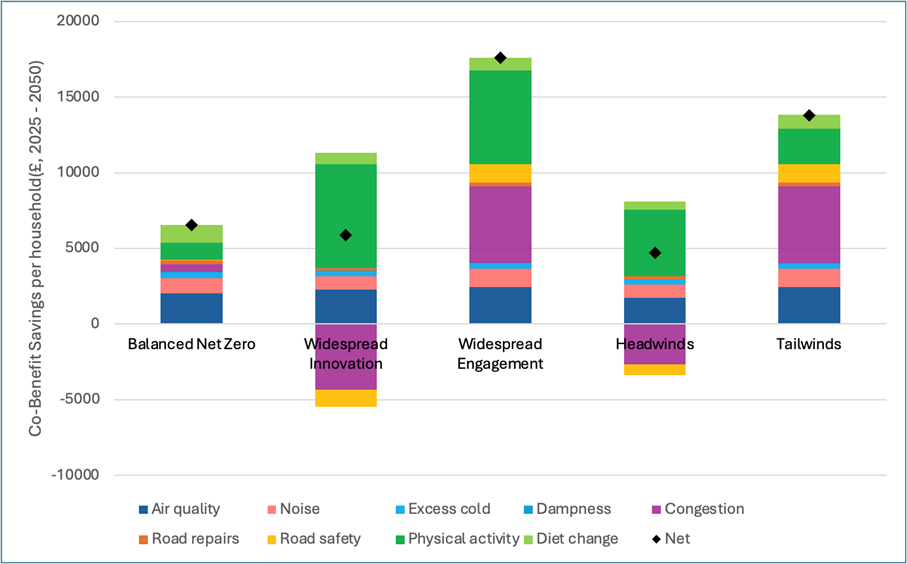
In the face of competing and conflicting challenges facing households, businesses and government, finding the ways climate action can lead to greener, healthier more economically resilient communities is critical to expanding the scale and scope of climate action.
Funded by The Data Lab, the Climate Outcomes and Benefits for the Economy, Nature and Society (CO-BENS) project to improve the visibility of the positive impacts of climate action, alongside providing a stronger economic case for investment.
In this guest blog, Andrew Sudmant from the Edinburgh Climate Change Institute explores the surprising benefits of climate action uncovered by the project.
Reaching net-zero emissions by 2050 will result in a host of changes to our economy and society. The impact of these changes will be visible nationally and will also have a direct impact on our day-to-day personal lives. The impacts – both positive and negative – will be felt in our energy bills, our travel patterns, our diets and our health outcomes.
Narratives around these changes are currently bleak, emphasising the sacrifices to be made. The ‘co-benefits,’ or wider social impacts of decarbonisation, however, are substantial: Existing research[1] has found that the benefits from cleaner air, warmer homes and better connectivity in cities that are the indirect impact of climate action greatly outweigh the costs of action; for every £1 in spending on climate action there are approximately £6 in wider social benefits.
Local factors affecting co-benefits
In our work we have produced the first analysis to understand how these co-benefits of climate action vary across local areas of the UK. Including local factors that affect the scale of co-benefits, including density, air quality, congestions levels and characteristics of the local economy, we find that the social benefits of climate action vary dramatically between places. Figure 1, for example, shows that the air quality benefits of climate action are as large as £1386 per person in busy urban centres including London and Birmingham, but is much smaller in rural areas.

Figure 1: Air quality benefits by LSOA/Data Zone from the Balanced Net Zero Scenario of the 6th Carbon Budget
Variation by climate action scenario
We also find that the scale of co-benefits, and the kinds of co-benefits that are generated, is significantly affected by the kind of climate actions we implement. In Figure 2 we compare household level co-benefits by the scenarios put forward by the UK Climate Change Committee. In each scenario different actions are implemented to reach Net Zero, for example, the ‘Engagement Scenario’ includes more active transport (walking and cycling) while the ‘Innovation Scenario’ includes more electric vehicles. Across the UK average benefits per household are £6,808 in the ‘Balanced Net Zero Scenario’. Across differing scenarios, however, benefits are estimated to range from £4,607 to £18,605 per household.

A net-zero policy reoriented to prioritise co-benefits and social gains alongside emissions reductions may be critical to the next stages of climate action. As we shift from focusing on electricity production to retrofitting homes and decarbonising transport, highlighting the co-benefits of action can be a powerful tool for building public support. Realising these benefits, however, will depend on carefully designing climate actions to align address local socio-economic challenges.
For further information on the co-benefits analysis please contact Andrew Sudmant (andrew.sudmant@ed.ac.uk) or Ruaidhri Higgins-Lavery (r.higgins-lavery@ed.ac.uk).
[1] Sudmant, A., Boyle, D., Higgins‐Lavery, R. et al. Climate policy as social policy? A comprehensive assessment of the economic impact of climate action in the UK. J Environ Stud Sci (2024). https://doi.org/10.1007/s13412-024-00955-9
